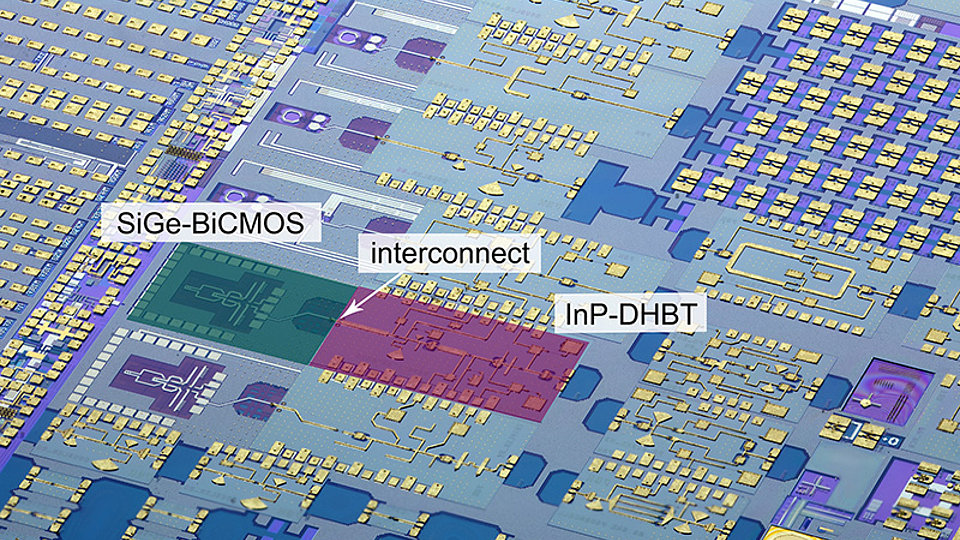Research Fab Microelectronics Germany (FMD)
To reinforce the position of Europe’s semiconductor and electronics industry within global competition, eleven institutes within the Fraunhofer Group for Microelectronics together with the Ferdinand-Braun-Institut and Leibniz institute IHP joined their forces. In a cross-location Research Fab Microelectronics Germany (FMD), the partners bundle their resources and know-how in this field of competence. The aim is to be able to offer customers from large industry, small and medium enterprises, and universities the entire value chain for microelectronics and nanoelectronics in an uncomplicated manner and from a single supplier. As of the beginning of 2025, FMD has now grown to 15 institutes with a total of more than 5,400 employees.
As part of the FMD, FBH contributes its expertise and capabilities in the development and realization of III-V based semiconductor components for high-frequency, power electronics, and optoelectronics.
Newsroom FMD.insight
Click here for the FMD newsroom (currently only in German language) - with the latest news from the world of microelectronics! On FMD.insight (currently only in German language) you will find all the updates on current projects, upcoming events, recently published papers, and innovations from the institutes cooperating with FMD.
Important FMD research projects at FBH are currently:
- Green ICT @ FMD: As part of Green ICT, a cross-site competence center for resource-conscious information and communication technology (ICT) is being created. This center works onthe eco-balancing of ICT solutions and are provides suitable measurement environments for partners in industry and science. The FBH is involved with the topics digitalization, mm-wave transceivers, and 140 GHz broadband links. The institute also coordinates one of the three technical focal points of the competence center, the “energy-saving communication infrastructures” hub.
- FMD-QNC:This project addresses fast quantum (Q) and neuromorphic computing (NC), which set the stage for new computing technologies. Computing-intensive technologies and applications, such as artificial intelligence, are increasingly pushing conventional digital computers to their performance limits. The FMD-QNC project is funding equipment to provide microelectronics-based manufacturing processes for quantum computing components. At FBH, this includes investments in photolithography and opto-electronic hetero-integration. Support for start-ups is also being provided (QNC Space).
- European Chips Act (EuCA): In July 2023, the EU Parliament approved the Chips Act. 43 billion euros are to be made available in the future to boost chip production in Germany and Europe - and thus become less dependent on the markets in the USA and Asia. As FBH, we are involved in the pilot line “Advanced Packaging and Heterogeneous Integration for Electronic Components and Systems” (APECS) as part of the FMD. FBH's contributions include a platform for the hetero-integration of bipolar mm-wave InP chiplets on BiCMOS and the photonic integration of GaAs laser chiplets.

